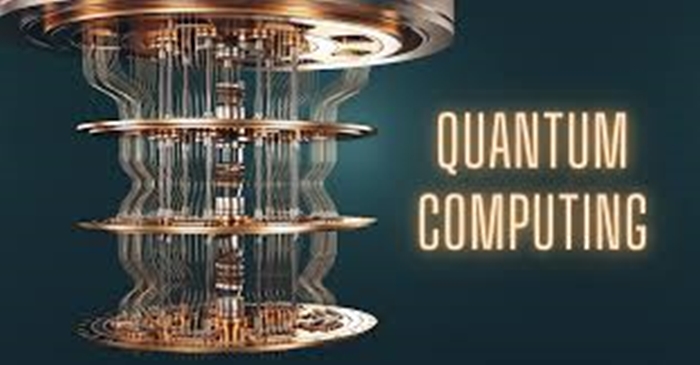In this article, we discussed the meaning of quantum computing. We also talked about the uses, benefits and limitation of its.
Definition
Quantum computing is a multidisciplinary field comprising aspects of computer science, physics, and mathematics that utilizes important mechanics to solve complex problems faster than on classical computers.
Quantum computing is an area of computer science that uses the principles of quantum theory. Quantum theory explains the behavior of energy and material on the microscopic and subatomic levels.
This is a developing field of cutting-edge computer science attaching the unique qualities of quantum mechanics to solve problems beyond the ability of even the most powerful classical computers.
Uses and Benefits of Quantum Computing
Here are some potential benefits of quantum computing:
Financial institutions may be able to use quantum computing to design more effective and efficient investment portfolios for retail and institutional clients. They could focus on creating better trading simulators and improve fraud detection.
The healthcare industry could use quantum computing to develop new drugs and genetically-targeted medical care. It could also power more advanced DNA research.
For stronger online security, quantum computing can help design better data encryption and ways to use light signals to detect intruders in the system.
Speed
Quantum computers are incredibly fast compared to classical computers. For example, quantum computing has the potential to speed up financial portfolio management models, such as the Monte Carlo model for gauging the probability of outcomes and their associated risks.
Ability to solve complex processes
Quantum computers are designed to perform multiple complex calculations simultaneously. This can be particularly useful for factorizations, which could help develop decryption technologies.
Simulations
Quantum computers can run complex simulations. They’re fast enough to be used to simulate more intricate systems than classical computers. For example, this could be helpful for molecular simulations, which are important in prescription drug development.
Optimization
With quantum computing’s ability to process huge amounts of complex data, it has the potential to transform artificial intelligence (AI) and machine learning (ML)
Limitations of Quantum Computing
Quantum computing offers enormous potential for developments and problem-solving in many industries. However, currently, it has its limitations.
Decoherence, or decay, can be caused by the slightest disturbance in the qubit environment. This results in the collapse of computations or errors to them. As noted above, a quantum computer must be protected from all external interference during the computing stage.
Error correction during the computing stage hasn’t been perfected. That makes computations potentially unreliable. Since qubits aren’t digital bits of data, they can’t benefit from conventional error correction solutions used by classical computers.
Retrieving computational results can corrupt the data. Developments such as a particular database search algorithm that ensures that the act of measurement will cause the quantum state to decohere into the correct answer hold promise.
Security and quantum cryptography is not yet fully developed.
A lack of qubits prevents quantum computers from living up to their potential for impactful use. Researchers have yet to produce more than 128, as of 2019.
According to global energy leader Iberdrola, “quantum computers must have almost no atmospheric pressure, an ambient temperature close to absolute zero (-273°C) and insulation from the earth’s magnetic field to prevent the atoms from moving, colliding with each other, or interacting with the environment.
“In addition, these systems only operate for very short intervals of time, so that the information becomes damaged and cannot be stored, making it even more difficult to recover the data.
Quantum computing uses
Pharmaceuticals
Quantum computers capable of simulating molecular behaviour and biochemical reactions could massively speed up the research and development of life-saving new drugs and medical treatments.
Chemistry
For the same reasons quantum computers could impact medical research, they might also provide undiscovered solutions for mitigating dangerous or destructive chemical byproducts. Quantum computing could lead to improved substances that enable petrochemical replacements or better processes for the carbon breakdown necessary for combating climate-threatening productions.
Machine learning
As interest and investment in artificial intelligence (AI) and related fields like machine learning upgrades up, researchers are pushing AI models to new excesses, testing the limits of our existing hardware and demanding tremendous energy consumption. There is evidence that some quantum algorithms might be able to look at datasets in a new way, providing a speedup for some machine learning problems.
The components of a quantum computer
quantum hardware
Quantum hardware has three main components.
Quantum data plane
The quantum data plane is the core of the quantum computer and includes the physical qubits and the structures required to hold them in place.
Control and measurement plane
The control and measurement plane converts digital signals into analogy or wave control signals. These analogy signals perform the operations on the qubits in the quantum data plane.
Control processor plane and host processor
The control processor plane implements the quantum algorithm or sequence of operations. The host processor interacts with the quantum software and provides a digital signal or classical bits sequence to the control and measurement plane.
Quantum software
Quantum software implements unique quantum algorithms using quantum circuits. A quantum circuit is a computing routine that defines a series of logical quantum operations on the underlying qubits. Developers can use various software development tools and libraries to code quantum algorithms.
The types of quantum technology
Gate-based ion trap processors
Gate-based superconducting processors
Photonic processors
Neutral atom processors
Rydberg atom processors
Quantum annealers
Conclusion
Because of the largely unrealistic cost of quantum computers today, organizations can instead opt to access a cloud-based service that provides quantum computer technology through a third party. Referred to as quantum as a service, this model lets users access and use quantum resources over the internet, eliminating the need for them to own a quantum computer.
READ: Cloud Computing and its Future


